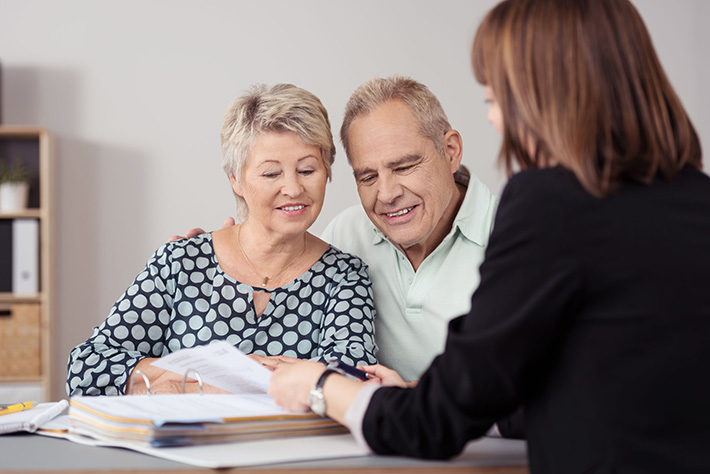In a bad economy, personal bankruptcies become commonplace, even amongst people who never thought they could go bankrupt. The COVID-19 era has brought the United States depression-level unemployment, leaving millions of households facing insolvency. If the economic collapse has caused you to fall behind on your credit obligations, you might be wondering if a Chapter 7 Bankruptcy is an option for you and what to expect after you file.
Here is what to expect after filing for personal bankruptcy.
What Is Chapter 7 Bankruptcy?
Chapter 7 is the “liquidation” bankruptcy. This means that the court will require the sale of non-exempt valuable property, which it will then distribute amongst the creditors.
You can keep all exempt property in a Chapter 7. Exempt property includes but is not limited to the following:
- A certain amount of home equity
- 401(k)s
- IRAs
- A vehicle with equity up to a certain value
- Most household items (furniture, dishes, televisions, etc.)
- Most personal possessions (clothing, computers, cellphone, etc.)
All debts not covered by the sale of property are discharged. Once the case is over, the bankrupt individual receives a discharge notice. From that point on, he or she owes no debts except ones ineligible for elimination in bankruptcy.
Debts that cannot be discharged in a Chapter 7 Bankruptcy include but are not limited to the following:
- Past due federal income taxes less than three years old
- Child support
- Student loans (federal and private)
- Criminal restitution
- Certain civil judgments
- Debts obtained by fraud
Chapter 7 versus Chapter 13
Chapter 13 bankruptcy is often called the “home-saver” option. Because Chapter 13 requires you to liquidate no property, it is ideal for those with substantial home equity who have fallen on hard times. It can also help those who have large debts that are non-dischargeable in a Chapter 7 bankruptcy.
In a Chapter 13, you pay your monthly debts according to what you can afford. The court approves the plan and any dischargeable debts remaining at the end of the plan are eliminated. Unfortunately, non-dischargeable debts, such as student loans, remain your responsibility after the Chapter 13 concludes.
What to expect after filing a Chapter 7?
Most Chapter 7 petitioners feel an immense burden has been lifter after filing. In fact, most regret not having taken this action sooner. Once you reach the point where a Chapter 7 is necessary, it is unlikely you can get out of debt on your own. You need a fresh start, and a Chapter 7 bankruptcy provides it.
The Automatic Stay
Upon filing, you are granted an automatic stay. This court order prohibits any further collection activity. That means no more debt collector phone calls, threatening letters or the seizure of property through a legal judgement against you. During the automatic stay period, you are collection proof. You should only pay bills for things you intend to keep after bankruptcy.
For example, if you intend to remain in your present apartment, you need to pay the rent. However, since evictions are postponed until Chapter 7s end, you can avoid paying the rent if you plan to move. This may be necessary if you will not be able to afford the place post-bankruptcy.
Assignment of a case number
Once your petition is filed, the court will assign you a case number. The case number appears on all court documents related to your case. You can use the case number to access the case’s electronic records.
Reaffirmations
If you owe money for certain property and want to keep it, you will need to file paperwork reaffirming the debt. This means you agree to continue making payments under the original terms. Debtors frequently reaffirm car loans to keep their transportation.
Court Appearance
In most cases, you will need to appear in court, though the procedure may differ by jurisdiction. In some cases, you must attend a “meeting of the creditors”, whereby your creditors have the right to inquire about any property you have available for liquidation. Since most Chapter 7 petitioners have no non-exempt property, creditors usually do not attend the court hearings.
In other jurisdictions, you may be interviewed by a representative of the court, who will seek to establish whether you have non-exempt property.
Discharge
Usually within a few months of your court appearance, you will receive your bankruptcy discharge papers. These are important evidence that prove you no longer owe the discharged debts. You may also need to furnish a copy of your discharge when applying for some types of credit, such as a vehicle loan or apartment lease.
A Chapter 7 Bankruptcy is a mostly painless process that gives you a fresh start. From the day you file, you are free of the debts that were holding you down. Within a few short months, to case will be over, and you can start rebuilding your credit rating.
If you are considering personal bankruptcy, consult with an experienced bankruptcy attorney to get you on the right track before you decide to file.
Hines Law is a Massachusetts Bankruptcy Firm ready to safeguard your interests and help rebuild your future. Our bankruptcy attorneys have the knowledge and experienced to expedite your case with 20 years’ experience in debt solutions.
Find out if personal bankruptcy is right for you and call us today for a Free Consultation!

